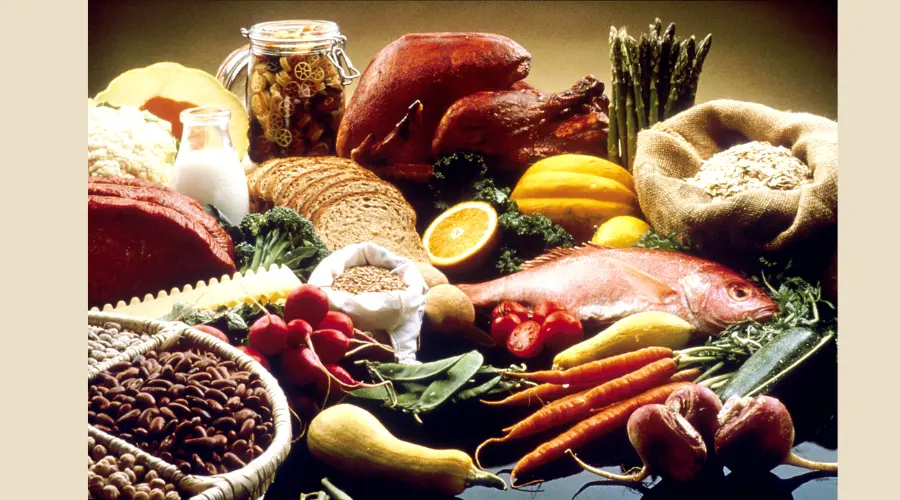Eating healthy is one of the best things you can do to improve your overall health and wellbeing. Eating nutritious foods can help you stay energized, maintain a healthy weight, reduce your risk of chronic diseases, and boost your immune system. Eating a balanced diet filled with a variety of fruits and vegetables, whole grains, lean proteins, and healthy fats can provide your body with the nutrients it needs to function at its best. Eating for your health doesn’t have to be boring or complicated. With a few simple changes to your diet, you can enjoy delicious meals that are both nutritious and satisfying. This article will discuss the benefits of eating a nutritional diet and provide tips on how to make healthy food choices.
What is a nutritious diet?
A nutritious diet is one that provides all the nutrients your body needs to function properly and stay healthy. These include proteins, vitamins, minerals, and fiber. Eating a nutritious diet can reduce your risk of diseases like heart disease, diabetes, certain cancers, and obesity. A nutritious diet can also help reduce your risk of getting nutrient deficiencies. A diet that is not nutritious doesn’t provide your body with the vitamins and minerals it needs to function properly. A poor diet can make you more susceptible to illnesses and diseases, interfere with your metabolism, and make you feel tired and lethargic. Eating a nutritious diet can help you maintain a healthy weight, reduce your risk of chronic diseases, and boost your immune system.
Benefits of eating a healthy diet
A well-balanced diet provides your body with the nutrients it needs to function properly. A nutritious diet can boost your immune system, help you maintain a healthy weight, reduce your risk of chronic diseases, and improve your overall health and wellbeing. Eating healthy can also reduce your risk of getting nutrient deficiencies. A healthy diet can also help you stay energized, sleep better, and feel happier. A healthy diet can be satisfying and delicious. You don’t have to eat bland, boring, or unappetizing foods to eat healthy. Healthy eating is about choosing the right foods for your body and your health.
Eating for your health: Food groups and dietary guidelines
There are several different food groups you can include in a healthy diet. Each group is rich in different vitamins, minerals, proteins, and healthy fats. Eating a variety of foods from each group can help you get the nutrients your body needs. A well-balanced diet can help you maintain a healthy weight and reduce your risk of chronic diseases. A healthy diet is high in fibre, whole grains, and legumes, moderate in dairy products, and low in red meat and saturated fats. It also includes plenty of fruits, vegetables, and healthy fats. A healthy diet can also be part of a healthy lifestyle, including regular exercise and enough rest. To eat healthy, you may want to consider following the Dietary Guidelines for Americans. These guidelines can help you better understand how to eat healthier and provide information on how to make better food choices. The dietary guidelines state that most healthy eating plans include a variety of vegetables, fruits, whole grains, fat-free or low-fat dairy products, fish, legumes, and nuts. Diets rich in these foods provide many different health benefits including reducing the risk of heart disease, certain cancers, and type 2 diabetes.
How to make healthy food choices
Eating a healthy diet can seem overwhelming, especially when trying to decide what to eat. It can be a challenge to make healthy food choices when eating at restaurants or on the go. However, there are some easy ways to make healthy food choices. The first thing to do is to create a meal plan, so you have a general idea of what you’re going to eat during the week. You can also make a healthy grocery list, so you don’t forget the foods you need to buy. Planning meals and knowing what you’re going to eat can help you make better food choices. It can also make it easier to stay on track with your diet, and make healthy eating more manageable. You can also learn how to read nutrition labels. Nutrition labels tell you how many calories, carbohydrates, proteins, and fats are in a food. Reading these labels can help you choose foods that are healthier for you. You can also try online tools like My Food Planner, which can help you plan meals and make healthy food choices.
How to create a balanced diet
A balanced diet is one that provides all the nutrients your body needs. It’s also one that is both healthy and satisfying. You can create a balanced diet by including a variety of healthy foods and nutrients in your meals. A balanced diet is different for everyone. It depends on factors such as your age, gender, lifestyle, and health goals. It can also depend on your culture and ethnicity. Eating a balanced diet can be challenging, especially on a budget. A balanced diet can be expensive, especially if you’re trying to eat organic foods. It can also be difficult if you have certain dietary restrictions. However, you can create a balanced diet by eating a variety of different foods from each group. You can also find apps and online tools that can help you create a dietary plan. There are many different healthy eating plans that you can follow. You can also create your own plan, based on your health goals and dietary preferences. Whatever dietary plan you choose, it’s important to stay consistent, and be patient. It can take time for your body to adjust to a new diet, especially if you’re making significant changes.
Foods to include in your diet
These are healthy foods that you should include in your diet. A nutritious diet can provide your body with the nutrients it needs to function at its best. Eating a nutritious diet can also help you maintain a healthy weight and reduce your risk of chronic diseases. A nutritious diet includes a variety of different foods, including fruits, vegetables, whole grains, legumes, and healthy fats. Fruits – Fruits are loaded with vitamins, minerals, and fibre. They’re also low in calories, and can make a great snack or dessert. Vegetables – Vegetables are rich in vitamins, minerals, and fibre. They can also make a healthy side dish or complement to many different dishes. Whole grains – Whole grains are rich in fibre, vitamins, and minerals. They’re also an excellent source of energy. Legumes – Legumes are an excellent source of protein, fibre, and vitamins. They can also be eaten as a side dish or as the main course. Healthy fats – Healthy fats can boost your energy, protect your heart, and make your skin and hair look healthy. They include coconut oil, olive oil, avocado oil, and walnut oil.
Foods to avoid or limit in your diet
Eating too much of certain foods can increase your risk of health problems and make it more difficult to eat a nutritious diet. It’s best to limit your intake of these foods, or avoid them completely. Sugar – Eating too much sugar can make you gain weight, and increase your risk of diabetes, heart disease, and tooth decay. Salt – Excessive salt consumption can lead to high blood pressure, which can put you at risk of heart disease. Red meat – Red meat is high in saturated fats and cholesterol. It can increase your risk of heart disease and cancer. Dairy – Dairy products can be high in fat, and they’re also high in calories. They can also make it more difficult for you to lose weight.
Eating for your health: Tips and tricks
– Make a meal plan: Planning your meals and grocery list can help you make healthier food choices. It can also help you save money, reduce your carbon footprint, and improve your health. – Be mindful of your portion sizes: It can be easy to overeat when you’re eating alone. It’s important to be mindful of your portion sizes. – Avoid processed foods: It’s best to stick to whole foods and avoid processed foods as much as possible. They’re often high in sugar and sodium, and they don’t provide your body with many nutrients. – Eat a variety of foods: Eating a variety of different foods can provide your body with the nutrients it needs. It can also help you avoid becoming bored with your diet. – Drink plenty of water: Drinking plenty of water each day can help keep you hydrated, boost your metabolism, and promote a healthy digestive system








